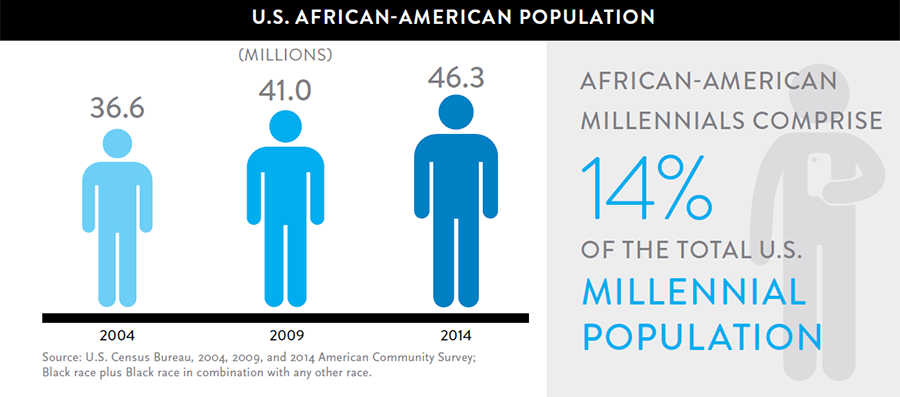African-Americans are exuberant and reflective—optimistic about present-day advances in income, education, entrepreneurship and health care, and determined to forge a better future as influential leaders and catalysts of social awareness against discrimination and social injustice.
This latest report highlights African-Americans’ economic and cultural gains and continues to shine a spotlight on how African-American Millennials are forging ahead in their use of technology and social media to raise awareness and evoke a national discussion on civic and political issues. African-American Millennials are expanding the use of mobile devices (particularly smartphones with a 91% penetration rate for all African-Americans), expanding their shopping carts with fresh foods and contributing to the diversification of mainstream primetime television viewership—forging a significant increase in advertising dollars focused on African-American audiences.
As African-Americans, particularly younger Millennials, continue to develop and expand their influence on mainstream America, companies are making changes to reach this culture-rich group with unique, captivating campaigns, as well as products and services that meet their needs.
African-American Population Growth
African-Americans continue to represent a significant percentage of growth in the U.S. population. Having grown 21% between 2004 and 2014, the U.S. Black population is currently at 46.3 million* (14% of the total U.S. population), according to the most recent U.S. Census information.
The U.S. is increasingly diverse and younger, which has largely been driven by Millennials, those born between 1982 and 2000, according to the U.S. Census. There are 83.1 million Millennials currently in the U.S. and of which African-American Millennials comprise 14% (about 11.5 million). African-American Millennials comprise 25% (about 11.4 million) of the total Black population.




